Food crisis in the Sahel: addressing structural causes and better coordinating humanitarian – development interventions
The issue of food security was at the heart of the meeting of the 9th Steering Committee (OSC) of the Sahel Alliance, which was held in Bonn on 24 June. The discussion panel organised on this occasion about the structural causes of food crises in the G5 countries was dedicated to the analysis of the crisis and the solutions that must be implemented swiftly. Several experts shared their findings and advice.
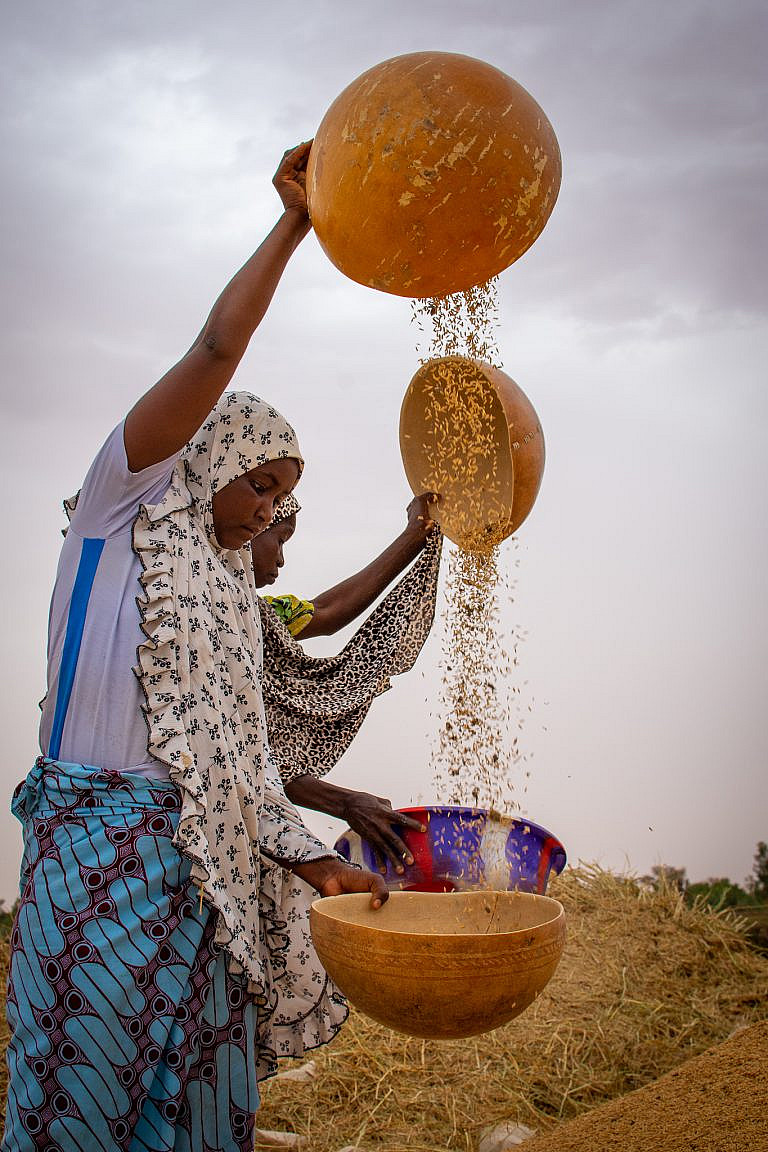
The G5 Sahel region is experiencing a sharp increase in the number of food insecure people. More than 6 million children under the age of 5 are considered malnourished. The reasons for this degradation are multiple, but according to Ollo Sib, Regional Adviser at the World Food Programme (WFP), this issue cannot be raised without mentioning climate change and water management. In addition, the global crisis in Ukraine continues to weaken the region’s food system, which heavily relies on imports, especially in 2022. Difficult access to agricultural inputs, including fertilisers, further jeopardises production. This year, only 46% of fertiliser needs could be met in the region. WFP expects a drop in production in 2022 to the amount of 10 to 20 million tons, a situation further worsened in comparison to 2021, which was already a bad year (production had already fallen by 11% due to conflict and population displacement, with armed groups controlling the main markets and supply routes in the region).

Beyond food issues, other social challenges are impacting the Sahel: more than 2,000 schools in the region are closed and millions of children are deprived of education. We observe, generation after generation, a persistent vulnerability since the fundamentals are not guaranteed: access to education, basic social services, water and health…
To conclude his speech, Mr. Sib invited those present to reflect on the operationalisation of the humanitarian-development nexus. As the issues overlap in the Sahel, it is indeed important to be able to address them head-on. Discussions on the nexus must lead to work on complementarities, strengthening social cohesion and resilience, in order to ensure results in terms of peace and the protection of the humanitarian space.
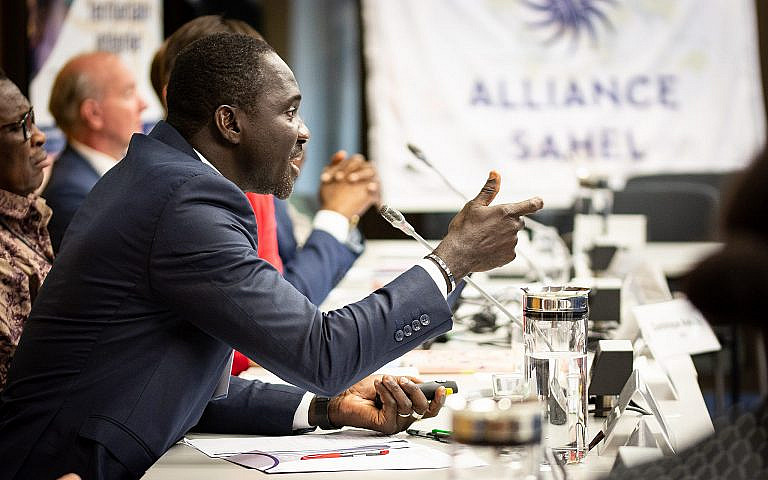
Ollo Sib proposed several possible solutions:
- Strengthening integrated programmes around the resilience of the population. Systems need to be improved to develop social protection and promote greater coordination between actors.
- A regional roadmap built by strong leadership from the region with the support of external partners. The aim is to promote dialogue around a better understanding of the structural causes of food insecurity and to identify common adaptation measures that can be taken.
More flexible financing, which makes it possible to move from emergency to development and vice versa. Think about prevention even in areas that are not yet heavily impacted by food insecurity.
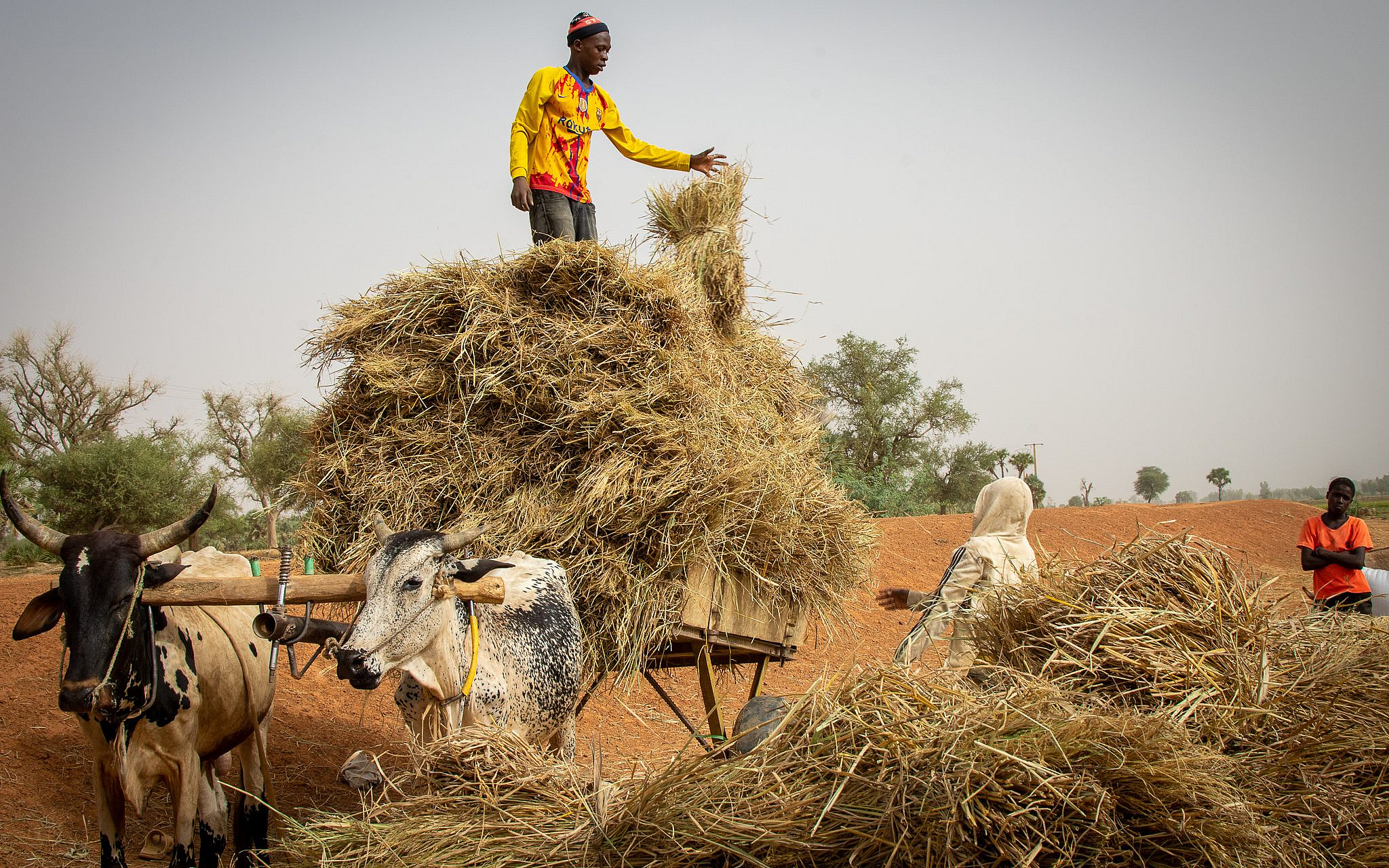
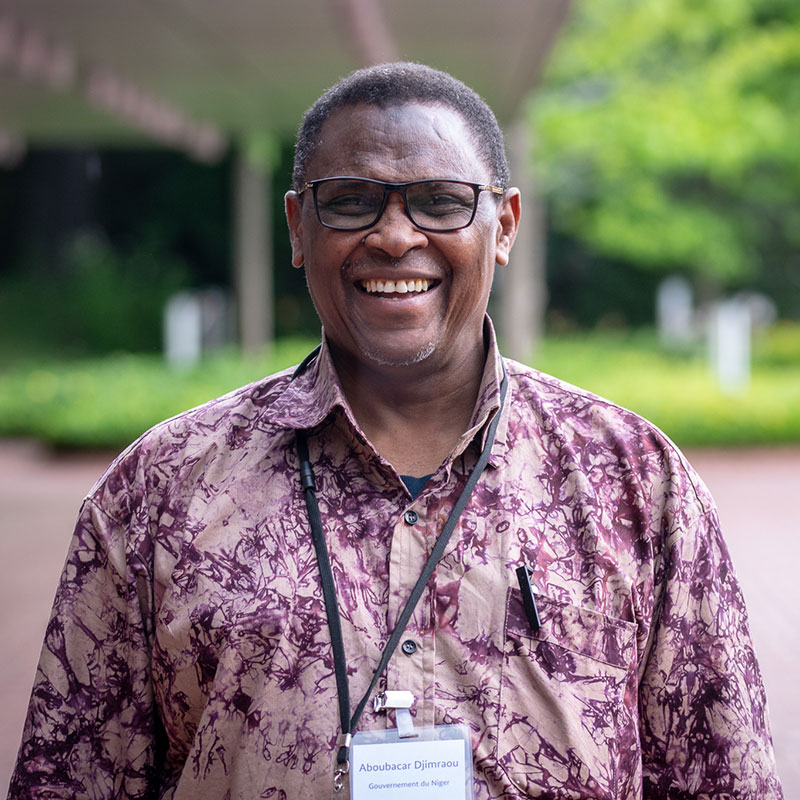
Niger: Intervention of Aboubacar Djimraou, Advisor to the Minister and High Commissioner to the 3N Initiative “Nigeriens Feed Nigeriens”
The issue of food security is at the heart of Niger’s concerns. The 3N initiative integrates all elements of Niger’s agricultural policy. This framework aims to reduce the dispersion of efforts and resources in the sector of nutritional food security and sustainable agricultural development and attempts to increase the effects of synergy and complementarity by combining agriculture, livestock, environment, nutrition and certain aspects of processing related to industries and trade.
After ten years of implementation, significant progress has been achieved at the macroeconomic level. Agricultural GDP grew by 86% and rural poverty fell by almost 10%. This is explained by large investments that have made it possible to see the number of irrigated areas increased by 119.34% in 2020 and to multiply irrigated production by 6. As part of sustainable land management, 65,000 ha of dunes have been treated, 433,000 ha of degraded land has been reclaimed in ten years, and 489,000 new hectares have been transferred to the Assisted Natural Region (ANR).
However, the challenges remain immense. The worsening climate situation is particularly alarming. The Harmonised Framework’s projections are worrisome, during the next lean season, most of the Sahelian territory will be in stage 3, i.e. in a state of crisis. Since 2018, Niger has set up a High Level Committee, chaired by the Prime Minister, as well as a tripartite Technical Committee in charge of operationalising the Nexus approach in Niger’s various regions.
The priority regions are the fragile areas of Diffa, Tillabéry and southern Maradi, in which OHCHR is working to implement the new I3N 2021-2025 action plan that is part of Niger’s new economic and social development plan for 2022-2026. This new action plan carries a cost of about 2,000 billion FCFA, or about 3 billion euros.
Social dimension of the food crisis and consequences in terms of adaptive social protection programmes
Mr. Bodewig, Senior Economist, Social Protection and Employment in the World Bank’s Africa Department, focused on the impact of the food crisis on households. He also addressed social protection as a tool for protection and resilience building.
Food insecurity results from multiple shocks that combine and have long-term consequences on human capital and poverty: the effects of the COVID-19 pandemic, climate change, conflicts, population displacement… Adaptive social protection can strengthen the resilience of poor households to shocks, through remittances and measures aimed at helping households diversify their livelihoods. Mr. Bodewig also pointed out that the Sahel countries have made great strides in developing adaptive social protection systems. He mentioned the Sahel Social Adaptation Programme, a trust fund financed by Germany, France, Denmark, the United Kingdom and the World Bank, among others, which has made it possible to set up money transfer programmes and increase their scope. In 2021, during the COVID-19 pandemic, these programmes reached nearly 1.3 million households. They are currently being used to combat food insecurity, especially during the lean season.
Finally, for Mr. Bodewig, the Sahel is at a crossroads. There is now evidence that adaptive social protection systems work, it is time to move from a project approach to building a truly government-led national system.
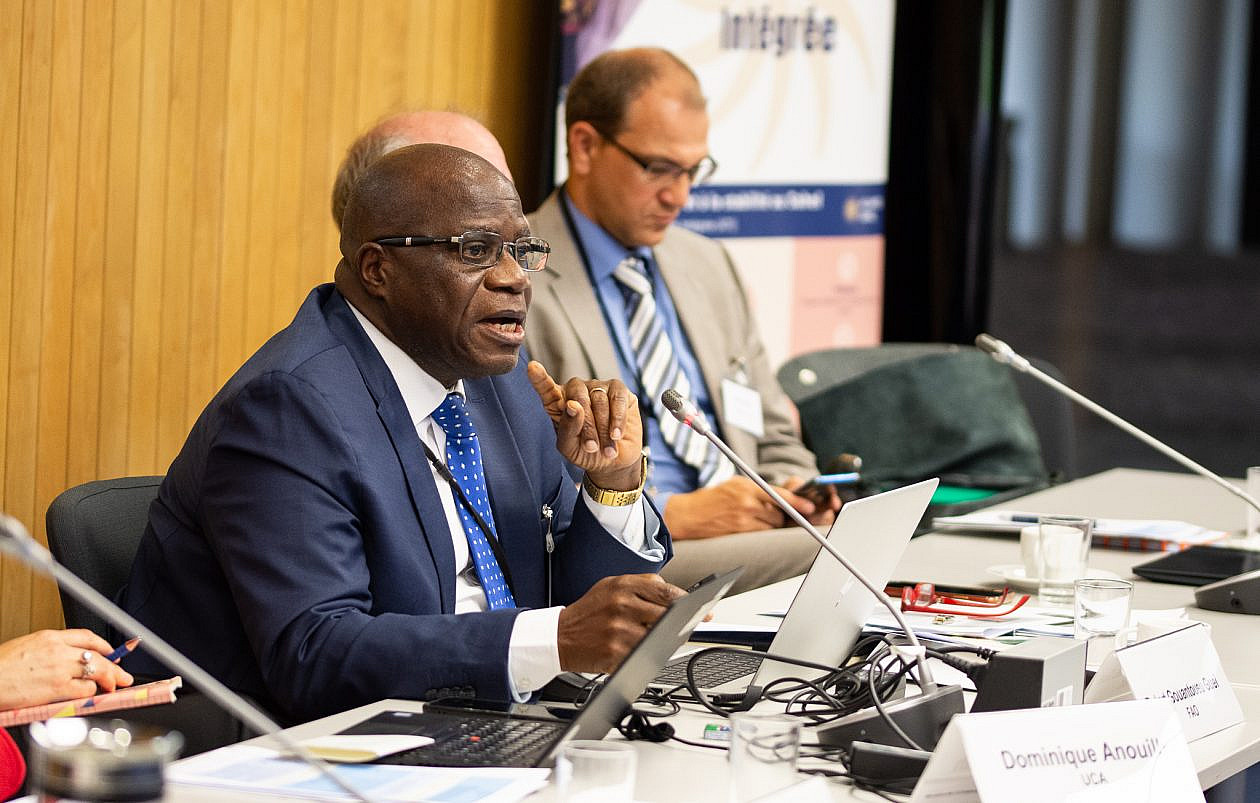
Recommendations of the Sahel Alliance Coordination Group on “Agriculture, Rural Development and Food Security”
Dr Robert Guantoueu Guei, FAO Sub-Regional Coordinator for West Africa, recalled that between 60% and 80% of the population in the Sahel depends on agro-sylvo-pastoral and fishery activities. These people are victims of conflicts, wars and displacement every day, but also suffer from the effects of climate change. The Ukrainian crisis is a reminder that the food systems of Sahelian countries are vulnerable.
During his speech, Dr. Guei presented the recommendations of the Sahel Alliance coordination group on “Agriculture, Rural Development and Food Security”
- Support G5 countries in emergency preparedness and anticipation interventions, such as crisis forecasting systems;
- Strengthen sectoral reforms addressing the structural causes of the food crisis, while taking into account some fundamental issues such as youth and women’s access to land, strengthening regional trade, or conflict resolution mechanisms, etc.);
- Strengthen the resilience of the populations most vulnerable to climate change through existing initiatives and approaches, such as agroecosystem restoration, green city initiatives, sustainable and climate-smart agricultural practices, digitisation of agriculture, climate risk financing, or water management;
- Support regional solidarity mechanisms such as those set up by the G5, ECOWAS and CILSS;
- Operationalise and strengthen the humanitarian-development-peace nexus, particularly in conflict zones, as promoted in the conclusions of the RCPA restricted meeting of 6 April 2022;
- Encourage increased co-financing in the food and agricultural sector, as it harmonises the approaches of technical and financial partners and the exchange of expertise, using the Sahel Alliance’s platform.
This session provided an opportunity to validate the recommendations made by the Sahel Alliance coordination group on “Agriculture, Rural Development and Food Security”.
Crédits photos: Alliance Sahel/2022/Aude Rossignol
Go further:

